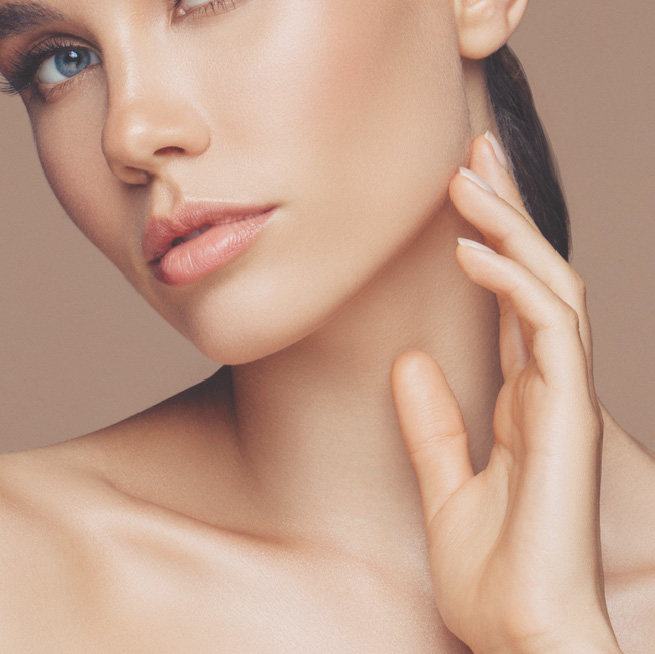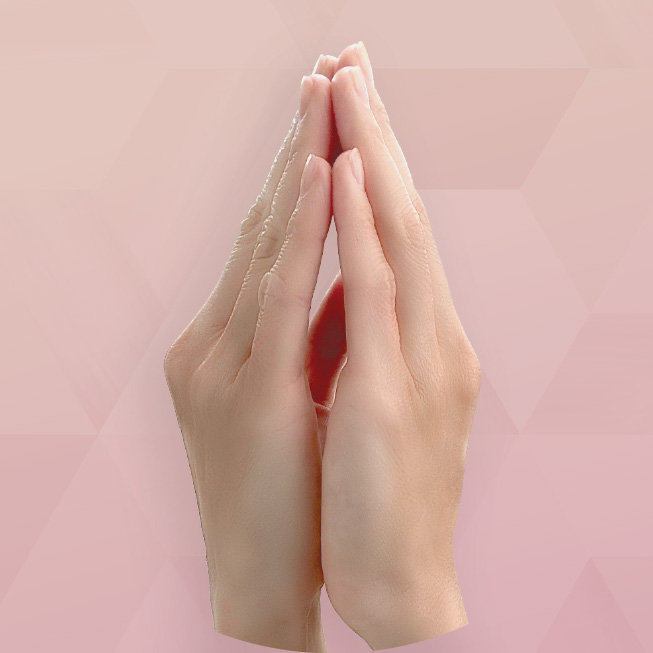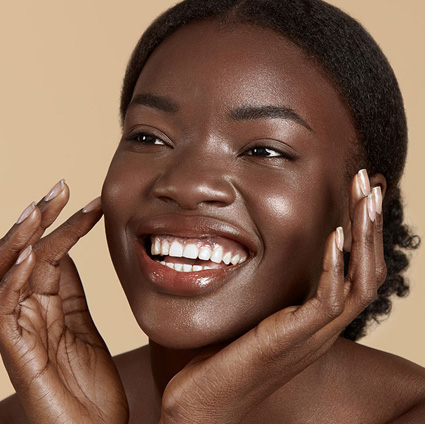
Navigating the skincare world can be tricky. How do you know which products to choose, and how do you get your skin to look and feel healthy? What does it even mean to have healthy skin?
Dr. Karen Leong has the utmost respect for her brilliant partner, Dermatologist Dr. Zenovia Gabriel (Dr. Zena).
“We believe that dermatology and plastic surgery fit together perfectly; our goal is to bring harmony to your own natural look so that you can be and feel like a better version of yourself.” – Dr. Zena
Discover Dr. Leong’s plastic surgery videos to learn more about the importance of skin care.
The synergy in this collaboration between a plastic surgeon and a dermatologist means their combined expertise brings a truly unique and complete approach to skin, aesthetic medicine, and surgical care.
Patients know that they are receiving the most comprehensive care when they visit ZENA Medical. They have come to trust Dr. Zena’s skincare philosophy and regime in-clinic as well as at home, she practices evidence-based medicine and is passionate about patient education. She makes sure that the latest research and developments in dermatology are communicated to the patients in a way that they can easily understand and apply to their daily skincare regime.
Dr. Zena’s Skin Pyramid is the cornerstone of her practice, illustrating skin treatment procedures in a simple to understand graphic. At the base of the pyramid is skin ‘Maintenance and Correction,’ which begins with sunblock for prevention and moves up to nourishing daily topicals, Retin-A, and bleaching creams to achieve strong, clear, and beautiful skin.
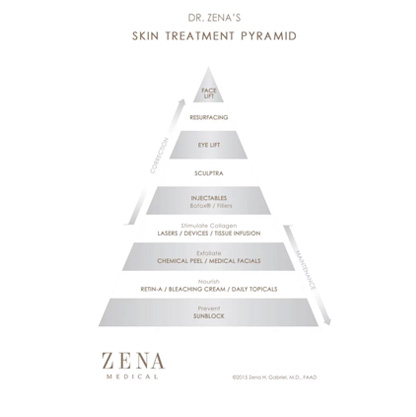
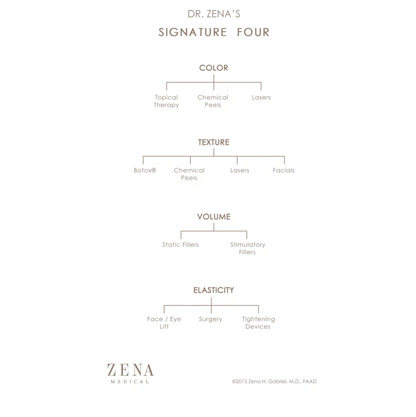
Dr. Zena recommends these maintenance therapies and customizes a topical regime to help you look radiant through all stages of life. You receive a customized treatment plan that has been specifically chosen to target your concerns. ZENA Medical’s specially curated products are personally selected by Dr. Zena to maintain their Signature 4 approach to perfect skin: even COLOR, smooth TEXTURE, ample VOLUME, and taut ELASTICITY.
These products are recommended after an in-depth consultation – systematically analyzing your skin and helping you maintain and prolong the results of in-clinic procedures. We navigate through hundreds of research-backed products to find you the ones that are potent but affordable as well. Some of the product lines we currently offer:
Dr. Zenovia Skincare
Elta MD
ZO Skin Health
